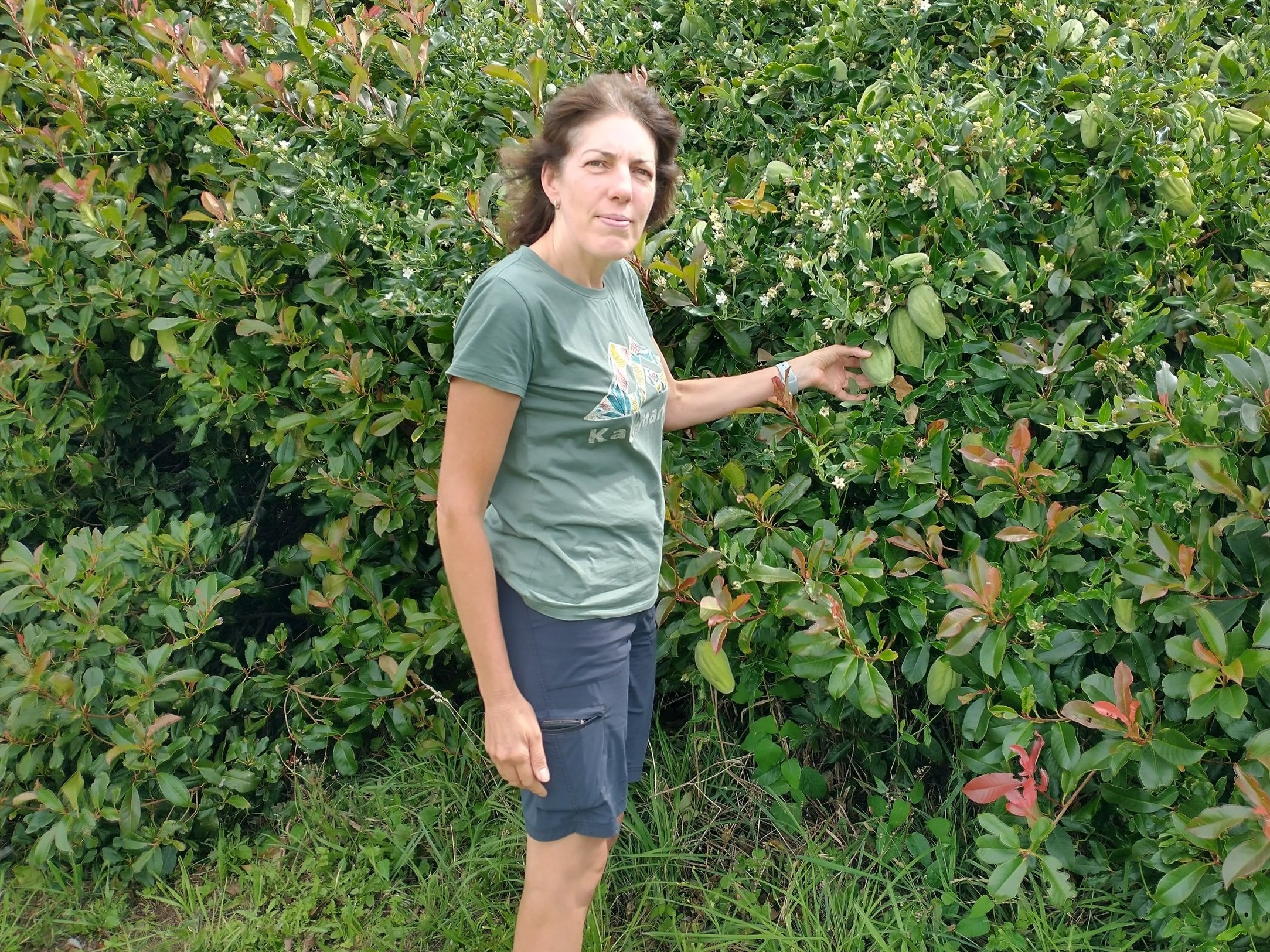Around Katikati, the soil and climate means moth plant thrives. This weed needs to be controlled now before the choko-like seed pods mature. From late summer into autumn, the pods burst open and release hundreds of parachute-like seeds that disperse widely.
A fast growing, poisonous vine that originally came from South America, it’s very invasive in shelter belts and hedges. It’s unwelcome in orchards as it harbours passion vine hopper, and it’s even worse for native plants as it smothers them. The sap can cause painful dermatitis for animals and humans too.
Sharon Strong points out a major moth plant infestation in a hedge that borders the Beach Road coastal walkway - February 2022
Sharon Strong, Katikati Environment Activator, is hoping to boost awareness of this plant which is also called kapok vine. “At this time of year, it’s really hard not to miss those plump green pods dangling out of trees”, she comments. “They might look tasty but they’re not - they’re nasty.”
Sharon is encouraging locals to take action. The quickest way to prevent the plant spreading is to remove the seed pods before they ripen. “Collect the pods now”, advises Sharon. “Please wear gloves and long sleeves to avoid any contact with the milky sap.” The pods must be disposed of properly in landfill, never on a compost heap. Sharon has checked and it’s OK to put them in your council rubbish bin.
“Then, if possible, dig vines out using a sharp spade. If you try to pull large vines they often snap off at the base and will regrow unless you use a stump poison.”
For more information, visit the Weedbusters website


